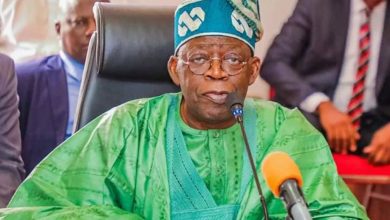BUA, DANGCEM and the Politics of Border Economics

That the recent news publication and reaction by stakeholders elicited a reaction before the information became public is irrelevant, yet instructive. It speaks to the level of distrust and indeed, a needless issue that ought not to have attracted this level of attention and international exposure if the true fact were laid out and the economic goals were at the heart of the argument. That Dangote Cement got an exemption was factual, yet contextually deficient.BUA Cement got the first approval, and exemption in June 2020 without the same public communication the government gave to all its engagement on the border closure; thus, setting the stage for undermining itself.
Since the initial announcement in 2019, there has been announcements, changes, caveats, circulars, notes and pronouncements made on a policy that is seen by all as well intended but unequitable. This latest news and the reaction thereof (obvious goof), had the leaders of corporate Nigeria in fits about the incongruity of same given the justification, intent and execution of the policy by government that had little support from the business community; in its execution. This was nonetheless a metaphor for how the economy is being run. The quiet storm brewing in Nigeria’s local cement industry was again re-ignited by the Bloomberg in its recent news/article The article , November 09, 2020 was captioned “Nigeria Exempts Dangote from Nigeria Border Closure”. This was further amplified by Mr. Atedo Peterside, a respected banker, entrepreneur and respected public policy commentator who responded with a conscientious tweet raising an objection to the global announcement . According to him ” allowing legitimate exporters & importers to move their goods across the border should be a no-brainer. “Why refuse everybody else & allow only one company (Dangote)?, he queried He said this is ‘ “why some of us argue that the Nigerian economy is rigged in favour of a handful of well-connected persons”
This news, in the main, alleged that Dangote Cement Company Plc was allowed by the federal government to export cement and clinker across the country’s land borders to neighboring markets. The news report which was amplified by Mr. Atedo Peterside, a one-time Chairman of StanbicIBTC Bank Plc and director Standard Bank Group, alleged that Dangote, Nigeria’s largest Cement manufacturer was given an undue concession to the disadvantage of others, in violation of the sovereign policy and creates an unfair playing field in the country. According to the Bloomberg report, “President Muhammadu Buhari’s administration gave permission for Africa’s biggest cement producer to export to Niger and Togo in the third quarter for the first time in ten months, Michel Puchercos, chief executive officer, said on an investor call Monday.”The report further mentioned that “The exemption to Dangote Cement is seen as a softening of the government’s position on a border closure that started in August last year, and could open the way for other businesses to fully resume exports across the country’s land barriers.”However, Proshare’s investigations into the development suggests that Bloomberg’s report may have been misinterpreted in the news narrative and commentary by well-meaning Nigerians about the concession to export cement to Togo and the Niger Republic.
A Matter of Sequence – BUA Cement Approval as a Precursor
Indeed, the first company that was granted permission by the Federal Government through the Office of the National Security Adviser (ONSA) to export cement from Nigeria to neighboring countries was not Dangote Cement but its younger rival BUA Cement Plc, which according to records, was given the nod to export cement in a letter sighted by Proshare and dated 18th June 2020 with reference number NCS/ENF/ABJ032/S.129 and signed by one, Dymka V.D. fsi, Comptroller (Enforcement Hqtrs) for the Deputy Controller-General (E, I&I).
The BUA letter was signed three months before Dangote Cement Plc was given a similar letter conferring the right to use the country’s land borders for the export of cement products to its designated country where it had operations.Contrary to the commentary following the not-well-digested news from Bloomberg, we can humbly submit that Dangote Cement Plcwas not given an exclusive right to move cement to neighboring countries, but as the earlier Bloomberg story (before the retraction and edit) confirmed the fact that other companies were equally allowed to export cement products across the country’s land borders.According to the fourth paragraph of the new post/report, “BUA Group and a gas company have received presidential approval to move goods across the land borders, Joseph Attah, the spokesperson for Nigerian Customs, said by phone from Lagos, without providing details”.
Atedo Peterside’s claim that the Dangote Cement Company Plc was given the sole right of product export was therefore inaccurate and he has since shared a tweet to recognise the new information, viz: “I have since learnt that Bua Group were also allowed to export goods through Nigeria’s “closed” land borders. FG should please accept that what is good for the goose is also good for the gander. When will the FG consider small honest businesses that are not so well-connected?”This is commendable and could have been better understood if context were provided. We attempt that below.
Nigeria’s Border Closure: The Old Game of Thorns
Bloomberg’s story may have been legitimately misconstrued by everyone including Mr. Atedo Peterside, simply because the fomer banker’s concerns about the trade and economic implications of Nigeria’s land border closure since August last year remain valid and true to all.
The Federal Governments’ reasons for closing the country’s land borders in 2019 was to stop the rampant practice of smuggling of goods across the borders and the decision to support local production by preventing the dumping of cheap foreign manufactured goods. The fact that the decision was taken after the country had just signed the African Continental Free Trade Act (AfCFTA), caused alarms in several quarters that saw the measure as a contradiction of the expected policy direction of the government.
Since the introduction of border restrictions on goods by land in Q3 2019, the country’s inflation rate has scrambled up from 11.02% per annum in August 2019 to 13.71% per annum in September 2020.
The added pressure on the domestic consumer price index (CPI) since Q4 2019 has been in part a reflection of the supply chain disruptions caused by the border closure. The rise in domestic prices, particularly food, has hit Nigerian consumers hard, especially the most vulnerable who have unsuccessfully struggled to keep their heads above rising inflationary waters (see chart 1 below).
A sign of the adverse domestic consequences of the border policy was the recent temporary reversal of restrictions on the import of grains into the country with the Nigerian Customers Service (NCS) giving four companies the right to import cassava and corn in a letter referenced NCS/T&T/021/S.93/VOL XM dated August 6, 2020, and signed by one TM Isa a Deputy Comptroller-General (T & T) for the Comptroller-General of Customs.
The letter notes that the approval was “strictly for the four (4) companies listed above and stemmed to the months of August, September and October only.” The total quantity of grains expected to be imported for the rest of 2020 was 140,000 tonnes.
The temporary import permission was a sign of domestic supply chain gaps that are yet to be resolved. COVID-19 and its resultant impact on vertical local production chains have meant that agriculture in 2020 has been disrupted and would not likely recover until sometime in Q2 2021, hoping that a second wave of the COVID-19 virus outbreak does not occur.
As rightly noted by trade experts and bankers, a tactical approach at containing the rising cost of domestic food at a time of pandemic may require the Federal Government to open up the nation’s land borders to a wider network of strategically important businesses to protect jobs, provide urgently needed inputs, and reduce the local cost of goods. The key tools of economic growth and development models do not include variables for trade restrictions and border closures, with AfCFTA as a forward-looking approach to continent-wide trade, this would be an oxymoron.
Economists note that if other countries in the subregion decided to reciprocate Nigeria’s trade restrictions in a Beggar-Thy-Neighbourpolicy on the sub-continent, companies such as Dangote and BUA Cement would be unable to export their products and would most likely see a tumble in foreign exchange revenues and a more severe slump in revenue growth.

Temperance as Tool for Understanding
The social media conversations may have been ill-informed as it were, on matters of fact, sequence and entity focus; yet the issue of granting concessions to cement companies to export clinker and other products to neighboring African countries across land borders was understandable given the underlying market philosophy of equity, transparency and efficiency that came to the fore.
That said, Mr. Atedo Peterside may have dropped the ball in not verifying the precise nature of the concessions granted the local cement companies and how many companies were involved before his incipient remarks and conclusions. He is well informed to know how things work out (but may be excused how things have since worked out currently under the regime). Singling out Dangote Cement as a sole beneficiary of the government policy was inaccurate and detracted from his otherwise expedient primary message of encouraging the government to remove restrictions on the movement of legitimate goods and services across the country’s land borders. His retractions on same is however duly noted.
Some facts on the state of play in the cement sector matters.
The state of play in the cement market is that in July 2020 Dangote Cement and other manufacturers got partial special dispensation to export their products with a certain sequence of border-crossing in Ilela border in Sokoto State and Ohumbe border in Ogun State.
Chief Executive Officer (CEO) of Dangote Cement, Mr. Michel Puchercos in a presentation to investors during the week had explained that the company was continuously focused on exporting cement to West and Central Africa. The information available to analysts suggests that although the company has plans to set up a cement factory in the Niger Republic, it still, presently, exports cement product to the country through Nigeria’s northern borders. To other West African countries Dangote uses the Lagos, Apapa ports for its exports. This provides a compelling case to approach the government after huge investments have been made. There is nothing untoward here and meets with best practice engagement ethos.
Beyond Sentiments: The Case for Open Trade
Lest the Dangote and BUA cement export concessions create a convenient diversion, it is important that the federal government seizes the moment (and this conversation provides a good basis) to review its border closure policy from a trade improvement viewpoint to take steps to address the negatives while promoting the positives in such a way to build trade bridges across the subregion that would ensure Nigeria’s trade and production competitiveness and regional relevance is well protected.
Slamming the door in the face of neighbours and expecting them to say thank you may not be a clever way of building domestic capacity. This is not the intention of this government one would imagine from the concessions granted to certain sectors so far.The best way to tackle the local productivity puzzle is to engage in systematic thinking that is above that which created the problem in the first place. This Dangote Cement conversation opens the way for such a conversation – using the arguments here as a test-fire case.
While border closures have had some beneficial effect on the economy in the short term, such as increased excise revenues and an improvement in local agricultural production; it equally has led to challenges with export of manufactured produce, regional trade tensions and increases in domestic food prices with food inflation at 16% as of September 2020 (see illustration 2 below).
Nigeria may need to think outside conventional classical trade boxes but operate within the context of best market practices if it is to gain the full benefit of AfCFTA and ensure a regional status that draws on open market competitiveness rather than ad hoc quick fixes that simply postpone dark days ahead.In conclusion, we may look back at this incident and thank the players for elevating the discourse on the subject and making it a central issue.







